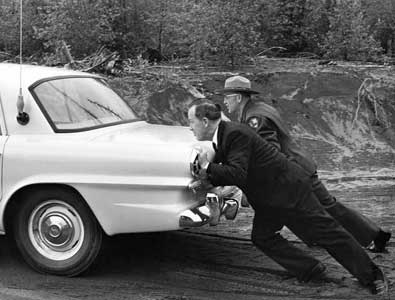
. . . by Trusting Christ’s Enabling Grace.
He it is who gave himself for us that he might redeem us from all iniquity and purify for himself a people of his own who are zealous for good deeds.
Titus 2:14 NRSV
Good works cannot produce or achieve right standing before God. However, a faith-filled salvation will produce many good works. Good works are the fruit of salvation, not its cause or basis. Good works flow from Christ’s grace enabling us to say, “yes,” to God and, “no,” to ungodliness.
Justification is by faith alone, but not by a faith that is alone. Good works can be described as the fruit of faith. A biblical expectation of redemption is living in a godly manner. There is no place in the Christian life for claiming a “born from above†experience while giving no evidence of a changed life. A changed life is a life that allows Christ to live in and through us (1 John 4:9).
Good works are not produced by the Christian, but good works are borne in the life of the Christian by the Holy Spirit (Gal. 5:22-23). We are fruit-bearers not fruit-producers: enabling grace works out the life of Christ in us.
Good works, or deeds, display to the world the changed heart that Christ has created (Matt. 7:15-20). Faith in the finished work of Christ expresses itself in deeds done for God and others. Therefore, good works are the fruit of faith, they follow after justification, they are evidence of a changed heart, and therefore flow from a life changed by the Cross.
The biblical call to endure in faith and obedience is a call to trust the Christ-purchased, empowering grace of God. God’s grace is first the gift of pardon and imputed righteousness; then it is the gift of power to fight the good fight and to overflow in good deeds. Christ died to purchase both redeeming pardon and transforming power: “[Christ] gave himself for us to redeem us from all lawlessness and to purify for himself a people for his own possession who are zealous for good works†(Titus 2:14).
Therefore, all our ability to endure to the end in good works is a gift of grace. This is what Paul says in 2 Corinthians 9:8: “God is able to make all grace abound to you, so that having all sufficiency in all things at all times, you may abound in every good work.†Grace abounds to us so that we may abound in good works. It is our work, yes, but enabled by his grace.
John Piper, The Roots of Endurance (Wheaton, IL: Crossway, 2002), 27.










